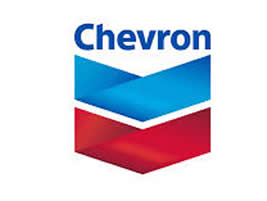Chevron Corporation is outlining ambitious plans to bolster its oil exploration activities in key African countries, particularly Nigeria and Angola. This strategy aims to harness the anticipated potential for a production rebound despite the challenges these nations have faced in maintaining output in recent years. During a recent Bloomberg interview, Liz Schwarze, Chevron’s Vice President of Global Exploration, emphasized the significance of West Africa as a hydrocarbon-rich region that remains relatively under-explored compared to other global markets. This underscores Chevron’s commitment to leveraging opportunities in this sector, with Schwarze stating, “Such a hydrocarbon-rich part of the world and relatively under-explored compared to other jurisdictions. The proof is in the action.”
Chevron’s renewed focus on Nigerian oil exploration is catalyzed by a recent discovery in the Niger Delta which is expected to produce as much as 17,000 barrels per day. This discovery, identified as a “near-field find,” was made with the Meji NW-1 well under Petroleum Mining Lease 49, situated in the shallow offshore region of the Western Niger Delta. According to a Chevron statement released on October 18, this discovery aligns with the company’s overarching global exploration strategy. This strategy focuses on identifying new resources that can prolong the life of existing assets while supporting expedited development and production.
Moreover, Chevron’s planned increase in exploration efforts across Africa reflects a broader commitment to frontier exploration, which continues to play a pivotal role in the company’s resource search throughout the continent. The company has kick-started drilling operations in Egypt this month and is set to launch an exploratory campaign in Namibia come December. Angola remains a critical area of interest, especially following its departure from the Organization of Petroleum Exporting Countries (OPEC) last year due to declining crude production. In Angola, Chevron has acquired deep water blocks 49 and 50 as part of its ongoing exploration strategy.
In Nigeria, President Tinubu has set a target to boost the country’s crude oil production to 4 million barrels per day by the year 2030, especially in light of the recent exodus of multinational corporations from onshore operations. Major oil firms such as ENI, AGIP, Shell, and Exxon Mobil have recently announced their intentions to sell or have already divested their onshore oil and gas assets. This trend highlights the significant challenges Nigeria faces in revitalizing its oil production, which is essential for meeting both OPEC’s production quotas and the needs of domestic refineries.
The oil output situation in Nigeria has been concerning, remaining between 1.2 and 1.3 million barrels per day since the start of 2023. A noticeable decrease occurred in September when the country’s average crude oil production fell by 33,000 barrels, bringing it down to 1.405 million barrels per day. According to OPEC’s October oil market report, production levels dropped from 1.438 million barrels per day in August, as reported by secondary data provided by Nigerian authorities. This decline illustrates the ongoing difficulties Nigeria is encountering as it strives to boost production and regain stability in its oil sector.
Overall, Chevron’s strategic pivot towards increased exploration in Nigeria and Angola comes at a crucial time for both nations, as they navigate the complex landscape of oil production challenges. With international oil companies reassessing their positions within Nigeria and the shifting dynamics of global energy markets, Chevron’s proactive exploration initiatives may prove vital not just for the company’s growth but could also play a role in revitalizing the oil industries of these African nations, potentially restoring their status as key players in the global oil landscape.


